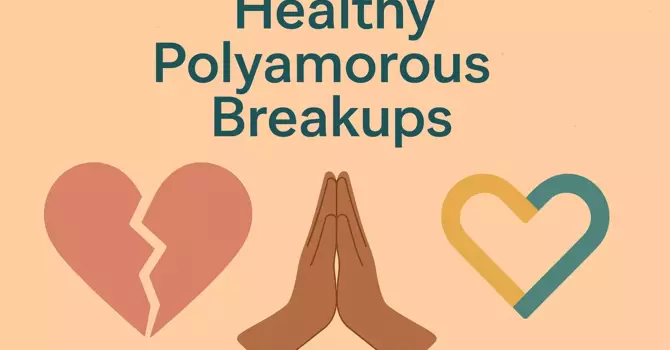Bullying is often associated with schoolyards and children. However, it's a harsh reality that extends far beyond the playground, infiltrating workplaces, social circles, and even homes. This article delves deep into the phenomenon of adult bullying, a lesser-discussed but highly prevalent issue. We begin by unpacking the concept of adult bullying, followed by an exploration of its impacts and consequences. Finally, we equip you with practical and effective strategies for combating this form of bullying. Understanding and addressing adult bullying is crucial in creating a respectful and inclusive society for all.
Understanding the Concept of Adult Bullying
Adult bullying is a prevalent but often overlooked issue in our society. It is a form of aggressive behavior exhibited by an individual or group of adults towards another adult, with the intent to cause physical, emotional, or mental harm.
Unlike childhood bullying, adult bullying is often subtle and can take many forms. It may occur in personal relationships, workplaces, or social settings, and often involves an abuse of power, manipulation, and control. The types of adult bullying include verbal, physical, relational, and cyberbullying.
Verbal bullying involves derogatory comments, criticism, and ridicule aimed at undermining the victim's self-esteem. Physical bullying may involve actual physical harm or threats of physical violence. Relational bullying, on the other hand, includes spreading rumors, isolating the victim from social groups, and damaging the victim's relationships.
Cyberbullying has become increasingly prevalent with the rise of digital communication platforms. It involves the use of digital tools like social media, emails, and text messages to harass, threaten, or embarrass the victim.
Understanding adult bullying is crucial in recognizing its signs and effects. Victims of adult bullying often experience stress, anxiety, depression, and a range of other mental health issues. They may also suffer from physical health problems and have difficulty in their personal and professional relationships.
To address this issue, it's necessary to promote awareness, provide resources for victims, and implement policies that discourage such behavior. Everyone deserves to live, work, and socialize in an environment free from bullying.
Impacts and Consequences of Adult Bullying
Adult bullying has numerous impacts and consequences on the well-being and mental health of victims. The scope of these effects can be vast, often extending beyond the immediate incident of bullying.
One of the most immediate impacts of adult bullying is the emotional distress experienced by victims. This can manifest in various ways, including feelings of sadness, anger, low self-esteem, and humiliation. These emotions can be overwhelming and can lead to depression, anxiety disorders, and other mental health issues if left unaddressed.
The psychological trauma caused by adult bullying can also lead to the development of post-traumatic stress disorder (PTSD). Victims may relive the bullying incidents through flashbacks and nightmares, causing severe distress and disrupting their daily lives. Consequently, victims may also develop avoidance behaviors, steering clear of situations, people, or places that remind them of their experiences, further isolating them from their social circles.
In addition to mental health issues, victims of adult bullying often face significant social impacts. They may feel isolated, rejected, and stigmatized, leading to a decline in social interactions and relationships. This social isolation can exacerbate feelings of loneliness and further contribute to mental health problems.
The effects of adult bullying can also extend into the workplace. Victims may experience decreased job satisfaction, decreased productivity, and increased absenteeism. This not only affects the individual's professional life but can also have broader implications for the overall productivity and morale of the workplace.
In the long term, the stress associated with adult bullying can lead to physical health problems, including sleep disturbances, cardiovascular disease, and other stress-related conditions. These health impacts, coupled with the psychological and social effects, underline the severe and far-reaching consequences of adult bullying.
In light of these impacts, it is crucial to address adult bullying proactively. This includes fostering a culture of respect and inclusivity, implementing and enforcing anti-bullying policies, and providing support and resources for victims. By taking these steps, we can mitigate the effects of adult bullying and promote healthier, more respectful interactions among adults.
Strategies to Combat Adult Bullying
Adult bullying is a pervasive issue that affects many people in various environments such as the workplace, social circles, and even online. It can lead to severe psychological distress and a diminished quality of life. However, there are several strategies individuals can employ to effectively combat adult bullying.
Establishing Boundaries: One of the first defenses against adult bullying involves setting clear and firm boundaries. It is vital to communicate to the bully that their behavior is unacceptable and won't be tolerated. This can be done verbally or in writing, but the essential part is to be assertive without being aggressive.
Documentation: It is crucial to document instances of bullying. This means recording the date, time, location, individuals involved, and a detailed account of what occurred. When possible, save emails, texts, or other forms of communication that contain threatening or offensive content. This record can be invaluable when reporting the bullying to authorities or if legal action becomes necessary.
Support Systems: Having a strong support system is critical in combating adult bullying. This could comprise of friends, family, or even professional counselors. Sharing experiences with others can not only provide emotional relief but also practical advice on dealing with the situation.
Report the Bullying: If the bullying occurs in a professional context, it should be reported to a superior or human resources department. In some cases, it may also be necessary to involve law enforcement. The aforementioned documentation will be crucial in these situations.
Self-Care: Dealing with adult bullying can be emotionally draining. It's essential to prioritize self-care during this time. This can range from maintaining a healthy lifestyle with proper nutrition and exercise to engaging in activities that promote relaxation and stress relief.
Education: Understanding the nature of bullying, reasons behind it, and its impact on victims can empower individuals to take action. There are many resources available, including books, online articles, and workshops that offer valuable insights into the dynamics of bullying and how to handle it.
Remember, it's important to stand up against bullying while also protecting personal well-being. By implementing these strategies, individuals can take proactive steps to combat adult bullying and create a safer, more respectful environment.




